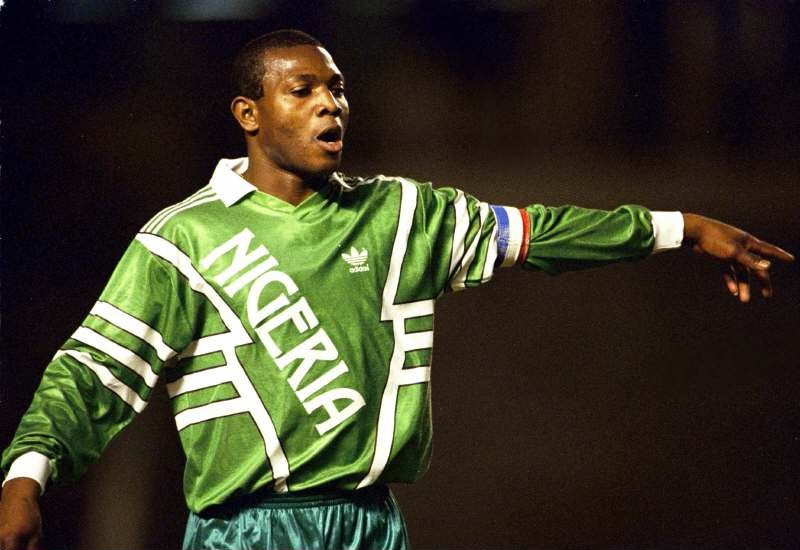To some the late Stephen Keshi was a troublemaker. To others, a trailblazer. Ultimately though, most will remember him as a legend.
A name synonymous with Nigerian and African football, Keshi was at the front and centre of the Super Eagles’ many highs and lows, firstly as a player then a coach.
Born in Azare, a town located in Bauchi State, one of the 36 administrative divisions of Nigeria, his love affair with the beautiful game began at St. Finbarr’s College in Lagos.
He’d join local side ACB Lagos in 1979 aged 17, and within two years won the first of his 64 international caps. After a seven-year footballing career in his native homeland and nearby Ivory Coast, he would cross the Mediterranean Sea and become one of the first players from Nigeria to join a European club.

Nicknamed the “Big Boss”, Keshi captained Nigeria to great success in the early 1990s.
Up until then football was largely seen as a pastime in Nigeria, but Keshi started to change perceptions. By gaining respect through stellar displays, he inspired those back home and they’ve not stopped following the path he’s blazed.
Sporting Lokeren of Belgium was his initial destination, and from there Keshi, a tall and muscular central defender, would move to Anderlecht; the nation’s most successful club. It was there he won his first pieces of silverware outside Africa – collecting two Belgian Cups and the league in 1991 – while working under successful Dutch manager Aad de Mos inspired him to envisage a future in coaching.
Before attaining his coaching badges, there was the small matter of making history. Prior to USA 94, the football-mad Nigeria had never qualified for a World Cup, which was partly down to the convoluted qualifying system: between 1934 and 1974, there was only space for a single qualifier from the African continent. That extended to two for World Cups 1982 through to 1994, when participation increased to three.
Keshi, whose influence grew steadily during the 80s, would be the cornerstone behind the country’s most successful period in the early 90s. The arrival of Clemens Westerhof, another impressionable Dutch coach, in 1989 coincided with their golden generation of footballers.
Jay-Jay Okocha, Finidi George, Sunday Oliseh, Daniel Amokachi and Rashidi Yekini were all instrumental in Nigeria winning their second AFCON in Tunisia months before the nation’s inaugural World Cup. But the real power was held by captain Keshi, who enjoyed a strong bond with Westerhof. “He was an ambassador of Nigeria,” the Dutchman reflected.
Such was Keshi’s overarching impact many started referring to him as the head of the ‘Mafia’, a group of national team players that determined who the manager did and didn’t play; they were also said to have the power to decide if any new player could join the squad.
Despite this interesting set-up, Nigeria managed to perform credibly, losing to eventual finalists Italy in the second round after extra-time. Keshi, who retired from international duty a year later, would continue playing for another four years in the United States, and then Malaysia.
During his brief period stateside, Keshi rekindled those coaching ambitions. His journey would lead him to coach Togo and then Mali, before being entrusted with the Nigeria job in 2011; a decision that was swiftly vindicated. Their near-two decade wait to once again be African champions ended in 2013, when a new generation of Nigerian footballers triumphed in South Africa.
History was also made, as Keshi joined Mahmoud El-Gohary of Egypt as the only individual to win African football’s grandest prize as both player and coach. However his spell at the helm wasn’t always a smooth ride. Given his past and forceful personality, the relationship he shared with the media and powers that be was frosty at best.
A few officials within the governing body described him as stubborn, while members of Nigeria’s fourth estate claimed he was arrogant and someone who didn’t handle constructive criticism well.
But that was Keshi in a nutshell. It was why he came to be known as the “Big Boss”. A man who followed his own path that Nigerian football lovers have come to greatly appreciate.




COMMENTS